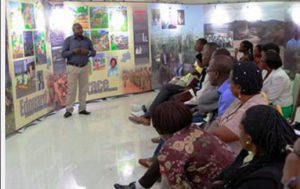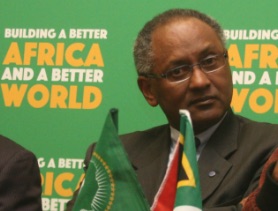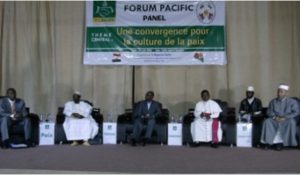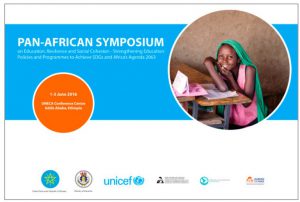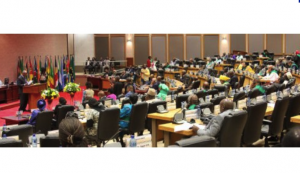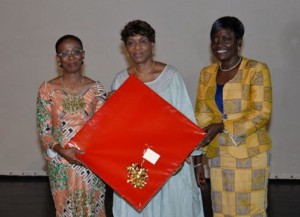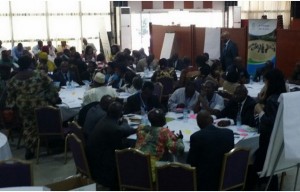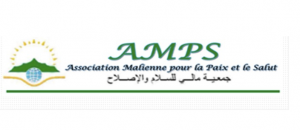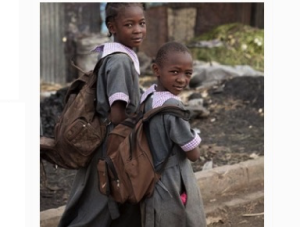. SUSTAINABLE DEVELOPMENT .
An article from the website of World Environment Day – United Nations Environment Programme
As the plane banks in off the Atlantic Ocean over Luanda, the capital of Angola, the chief driver of the southern African nation’s economy announces itself loud and clear. Dozens of hulking tankers and cargo ships sit low in the water off the bay, colourful containers are stacked up like Lego bricks along the long port, and workers bustle around the base of a loading crane that dominates the skyline. But all this activity belies the economic problems Angola has faced as the result of falling oil prices. . . .
With no sway over the global geopolitical and socioeconomic trends that have hit oil prices, Angola is looking to new industries such as ecotourism to drive growth and also help the global fight against climate change by gradually moving away from the domination of oil.
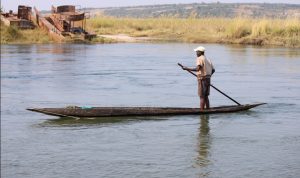
On the Cuito River
click on photo to enlarge
“We need to look at ways to diversify our economy and participate in the progress of our future generations,” said Environment Minister Maria de Fátima Jardim. “This is why our President has committed to protecting our elephants.”
The minister was speaking at the start of celebrations of World Environment Day, which Angola is hosting this year on 5 June as a sign of its commitment to combatting the illegal trade in wildlife.
Angola lost many of its elephants during a long civil war, which ran on-and-off from 1975 to 2002. It is unclear how many elephants remain, but those that do are facing pressure from poachers – both those seeking to profit from ivory and poor communities who rely on bushmeat to survive.
The nation is also a transit country for ivory, with carved goods coming over the border from the Democratic Republic of Congo for re-sale, largely to Asian nations.
The troubles facing Angola are part of a wider global problem. A new United Nations Environment Programme (UNEP)-INTERPOL report, released on 4 June, found that transnational criminal networks are profiting to the tune of up to $258 billion per year from environmental crimes, including the illegal trade in wildlife. This is a 26 per cent increase on previous estimates.
In response to its problem, Angola is introducing tougher penalties for poaching, shutting down its domestic illegal markets, and looking to provide alternative livelihoods for those at the bottom of the illegal wildlife trade chain. They are also training former combatants to become wildlife rangers.
“We have a big push to manage protected areas and create others for the benefit of our people,” said Abias Huongo, Director of Angola’s National Institute of Biodiversity. “For us to survive, other species need to survive. Together with the tourism ministry, we are exploring the potential of ecotourism to address the economic deficit with biodiversity.”
(Continued in right column)
Question related to this article:
How can tourism promote a culture of peace?
(Continued from left column)
It is also in Cuando-Cubango, a key region for biodiversity, where new lodges are opening. The Rio Cuebe lodge is one such place. A collection of cute and comfortable huts ranged along the leafy banks of a lazy river near Menongue, the lodge has been open for three years.
Regional ministers and biodiversity experts packed the lodge for a conference as part of World Environment Day celebrations, but most of the time it sits half empty. When guests come, they are usually expats working in the country.
However, UNEP Executive Director Achim Steiner believes this situation is about to begin changing.
“Angola has, over many years, relied on its fossil-fuel economy, whereas the last year has shown that kind of dependence can be a risk,” he said. “So, as Angola is managing the fall-out from the drop in oil prices it is looking at diversifying; this is where the notion of the green economy becomes relevant.
“Cuando-Cubango is a region that could provide an enormous opportunity for investment in terms of tourism: a unique area where in 20 years’ time the world will be paying thousands of dollars for an overnight stay.”
Steve Boyes, a National Geographic Society explorer, also believes a new path for Angola is opening up. Boyes and his team travelled to the source of the Cuito River – one of the two main rivers that flow into the Okavango River and feed the Okavango Delta, a 10,000-square-mile wetland that sits across the borders of Botswana, Namibia, and Angola.
As they travelled almost 1,600 miles in dug-out canoes over three months, Boyes and his colleagues saw first-hand the natural beauty Angola has to offer. The explorers have discovered three new species of plant, six new species of fish and four new species of reptile – all unique to Angola. Boyes and his partner John Hilton are working with the government to scope out ecotourism opportunities.
“We are talking about the largest undeveloped river basin on the planet,” he said. “It’s an incredible opportunity for conservation, for tourism development. To me, it’s the biggest tourism and rural development opportunity in Africa in the last few decades.
However, Boyes believes urgent action is needed to ensure wildlife is conserved. He is particularly concerned about bushmeat, having witnessed villagers move from subsistence to selling the meat in markets for profit – with the killing of animals now taking place at a larger scale.
“The scenic beauty and wildlife are all here. If we do it (conservation efforts) in five years’ time it would take thirty years to fix. If we do it now, it will take ten years to fix,” he said. “If we get 100 adventure travelers in on mountain bikes, they (villagers) will earn far more money than they get off bushmeat. There is a strong desire for a new beginning.”
